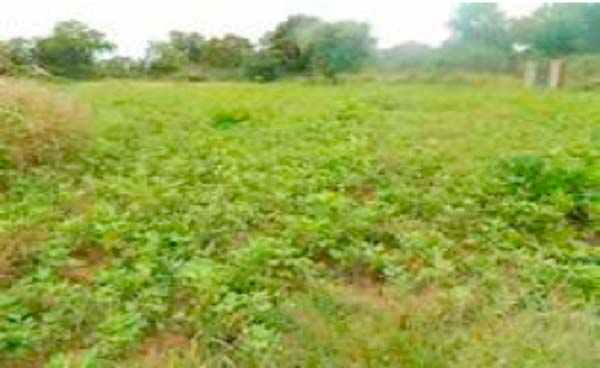
Picture:
Groundnut field
The
mass exodus of Gambian youth to Europe, through the Sahara desert to the
Mediterranean Sea, is taking a heavy toll on the country’s agricultural
sector. Kebba Jeffang reports that the
sons of the farmers have left the pastures at the farms in The Gambia for a
greener pasture in Europe.
A
lot of farmers across The Gambia are experiencing hardship at their farms due
to shortage of manpower. Their children,
the energetic youth, who often provide the labour at the farms are gone to
Europe through what is commonly called in The Gambia ‘back-way’.
Farmers
from almost all the regions of the country have bemoaned the absence of their
children at the farms. Some of the
farmers could no longer farm the normal size of land they used to cultivate while
those that are a bit better off now have to pay for the labour at their farms.
The
farming economy is the only means of income creation for the majority of rural
families most whom live below the poverty line.
According
to Access Gambia, an online resource centre on Gambia, 80 per cent of the
country’s population depends on agriculture for food and cash income.
The
agricultural sector is one of the most important sectors of the Gambian
economy, contributing 32 per cent of the gross domestic product, and accounting
for 70 per cent of the country’s foreign exchange earnings.
Access
Gambia has it that about 54 per cent of the land area in The Gambia is good
quality arable land, out of which about 39 per cent is currently under
cultivation.
But
with the mass exodus of youth, the main labour providers at the farmers, the
land area under cultivation could be affected.
Kani
Camara, a native of Sandu Kuraw, said the irregular migration of youth has
pinned down the farming activities in their community.
“Now
some of the farmers who are a little bit better financially pay people to do
the cultivation and some of the other labour intensive works at their farms
because our brothers and sons are all gone,” he said.
“We
pay for sowing, weeding and harvesting.
The payment for labour now adds to the cost of buying fertilizer and
this year, we bought a bag for about D1,000.
So this is a big problem for us even though we know that when these
people succeed in Europe we will enjoy it but truly speaking, this year we have
suffered at the farms.”
For
Lamin Fadera in Kiang, the children do not just go to Europe.
He
said: “Sometimes, it is the family members themselves who make arrangements to
send their sons to Europe through the ‘back way’ because they believe they can
have instant success in Europe than in farming.
Fadera
said the absence of the youth at the farms is not helping farming activities,
particularly this year.
“Every
community you go in Kiang depends on farming during the rainy season and many
of the families solely depend on their sons to do the work. So in the absence of our sons, the harvest
this year would be less,” he said.
Rohey
Boye who lives in the Central River Region (CRR south) said some of them helped
their children to travel through the back-way because “we are poor and farming
has not been the solution to our poverty”.
“I
know whatever God said should happen would happen but thisa year I am not
expecting to harvest my normal harvest because my son who used to help me to
pay a tractor to plough the farm and buy fertilizer and herbicide is gone to
Europe and he is yet to start sending anything back home,” she lamented.
Meanwhile,
according to the International Organisation for Migration (IOM), Gambians,
Nigerians and Eritreans make up almost 40 per cent of all arrivals to Europe
through the Mediterranean Sea in the first seven months of 2016.
It
states that 28 per cent of Gambian migrants are unaccompanied minors, meaning
28 per cent of the young people leaving The Gambia for Europe are children age
17 and below.
In
a report updated on its website on 18 August 2016, the IOM said it has
registered 278,917 arrivals to Europe in 2016, as of August. Out of the arrivals, 266,631 arrived by sea
and 12,286 by land, and 3,156 died or could not be accounted for.
The
Gambia National Youth Council said the growing number of young people sailing
to Europe has so many causes including low rate of employment, poverty,
inadequate quality and relevant entrepreneurship skills for job market.
The
youth body said the lack of required educational level to attract employment,
attractive infrastructural development in Europe, and remittances from
successful Gambians in Europe are part of the both push and pull factors.
A
social commentator has said in order to curb the increasing trend of youth to
Europe, the Gambia government and other governments in Africa must reverse the
factors causing the irregular migration.
The
expert said the governments must create employment and initiate poverty
eradication programmes but also create an accommodative environment for young
people in the governance systems by tolerating divergent views.




